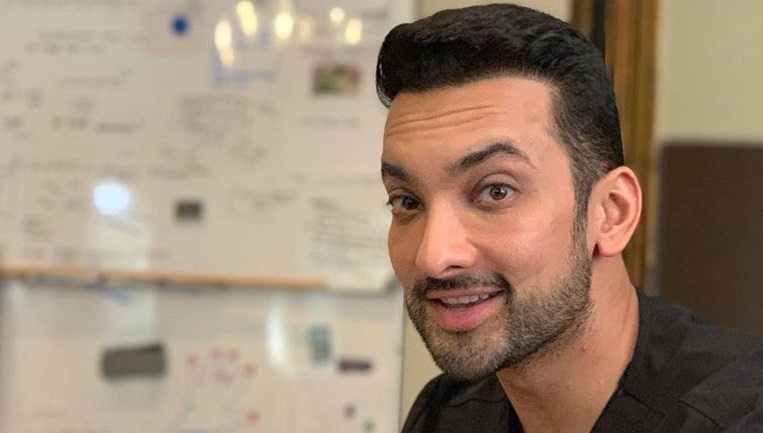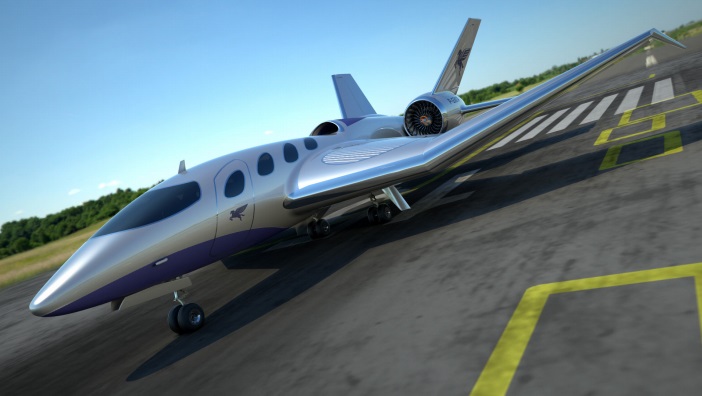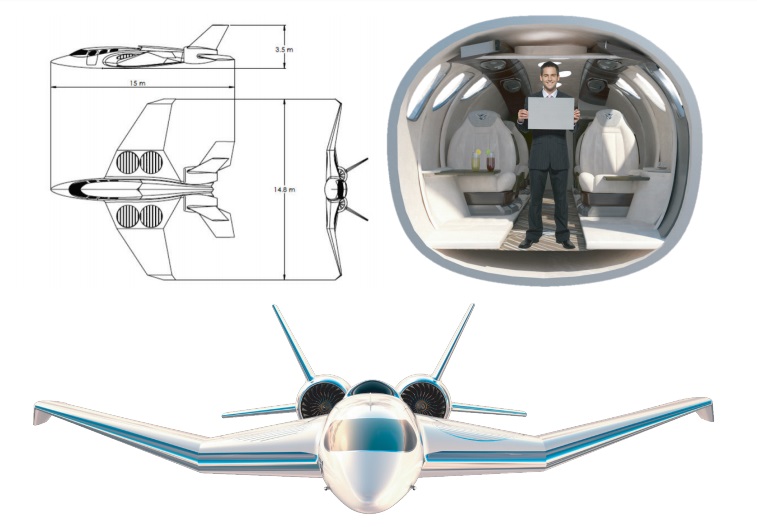In a move that signals a major leap forward in generative AI, OpenAI has quietly rolled out ChatGPT-5, its most advanced model to date….
Got R9200? Why not invest it in SA’s first vertical business jet

An SA company, Pegasus Universal Aviation, is looking to raise R20-million from private investors to build a full-scale model of what it claims will be the world’s first true business jet coupled with helicopter convenience. But will it come off?
The company says the vertical take-off and landing (VTOL) Pegasus vertical business jet will have the capabilities of a helicopter and some military capabilities, but will be faster and be able to land practically anywhere, even on grass.
The jet is expected to have up to eight seats, with a range of 4400km with a runway takeoff and 2124km with VTOL flights. While VTOL jets are being developed as air taxis by Uber among others, the Pegasus jet will be one of the first long-range VTOL business jets once it’s completed.
Private investors can purchase shares for the jet at R2300 a share — through the company’s website, by making payments to the company’s Investec bank account. To take part investors must procure a minimum of four shares, totalling R9200.
So far Pegasus Universal Aviation has raised R3m from about 40 investors against its R20m target
The offer opened on 23 September and closes on 22 December.
So far the company has raised just R3-million, from about 40 investors, the company’s COO Nasrin Ebrahim told Ventureburn.
She confirmed that the company’s prospectus (opens as a PDF) doesn’t demand that the company’s raise must reach a certain minimum threshold or the money will be returned to investors (as is common in some crowdfunding campaigns).
‘High risk investment’
The prospectus opens with a cautionary note to those looking to invest, that the shares on offer are unlisted “and should be considered a risk-capital investment”.
The directors are listed in the prospectus as the founder Dr Reza Mia (pictured above), Eminence Partners fund manager Zaakir Hoosein Mia (Reza’s brother) and Ebrahim.
Reza Mia, a medical practitioner in the field of aesthetic medicine, founded Pegasus in 2012. The company has a patent on the jet granted in South Africa in 2018 and has patents pending in the US and EU.
Mia’s team include former ExecuJet Aviation Group sales manager Robbie Irons, who began working as CEO in April and a former Airbus and Boeing engineer, Matthew Buttle as chief engineer.
The company is aiming to sell the jet to politicians, business executives and celebrities and VIP’s, as well as to those that want to deploy it for medical evacuation, anti-poaching and offshore and resource development.
R88.8bn in sales forecast
Going on figures provided in the prospectus, each jet will sell at R20-million with the company estimating that it will be able to sell 4444 airplanes over a 15-year period, resulting in R88.8-billion in sales — much of this generated from sales in the Middle East and the US.
Mia told Ventureburn that the company settled on the “4444” figure because it wanted to list the “exact number” for investors, adding that the calculation was made using a “25-page Excel document”.
The company expects the aircraft to be ready for certification and deliveries in five to seven years’ time and estimates that it will cost about $500-million (R7.4-billion) to bring the aircraft to market.
R2.6m raised in 2018
The latest investment raise follows a R2.6-million raise the company made last year. But Mia didn’t want to disclose to Ventureburn what the target was in that raise. He said only that the company needed to reach at least R2-million to ensure that it could accept the raise from investors.
He added that he’s spent about R5-million to R10-million of his own money, most of it off his medical practice, in funding the project so far. Most of this money has gone to engineering and marketing costs.
He says the company did approach the Department of Science and Technology’s Technology Innovation Agency (TIA) for help funding the aircraft, but was told that the project was at too early a stage for the agency to get involved in. For TIA to fund the project, Pegasus at least needed a working model, he says.

Mia, a serial entrepreneur, says he hit on the idea of manufacturing an aircraft because of what he refers to as the lucrative profits that can be made from the sector.
Similar high profits can be made from ship building and property, but Mia reckons that ships “are boring”and the property market is “always going up and down”. So, aircraft it was then.
Some might say the project won’t work because Mia practices as a doctor full time.
“We can’t limit ourselves. I sometimes say if I wasn’t a doctor, would it work out better,” he added.

He adds that he has a team of about 25 people — including his own staff and contracted engineers from about four or five companies, working on the project.
“So, the project does get enough attention,” he stresses.
‘I’m a genius’
But will it come off?
The prototype model is expected to take between 12 to 14 months to complete. Once completed the uncertified and unmanned model will be used to demonstrate the jet’s VTOL capabilities to investors.
When questioned on which US company Pegasus had chosen to build its prototype model, Ebrahim revealed to Ventureburn the company had not finalised what subcontractor it would go with.
So far, three or four subcontractors have sent quotes to Pegasus, but the company has yet to choose which one to go with, she said.
Mia added that despite this, he expects construction on the model to start in December, as soon as the raise is over, or in January. It might not necessarily be done by any US company, he added.
“We may do it (the construction of the prototype) ourselves. It will just be a different construction,” says Mia.
And what of the naysayers who don’t believe the project will come off?
Says Mia: “I’m a doctor, I have an MBA, I’m a member of Mensa. I’m a genius. So, if I’ve spent seven years investigating this, you must legitimately look into it.”
Featured image: Pegasus Universal Aviation founder Dr Reza Mia (Facebook)

